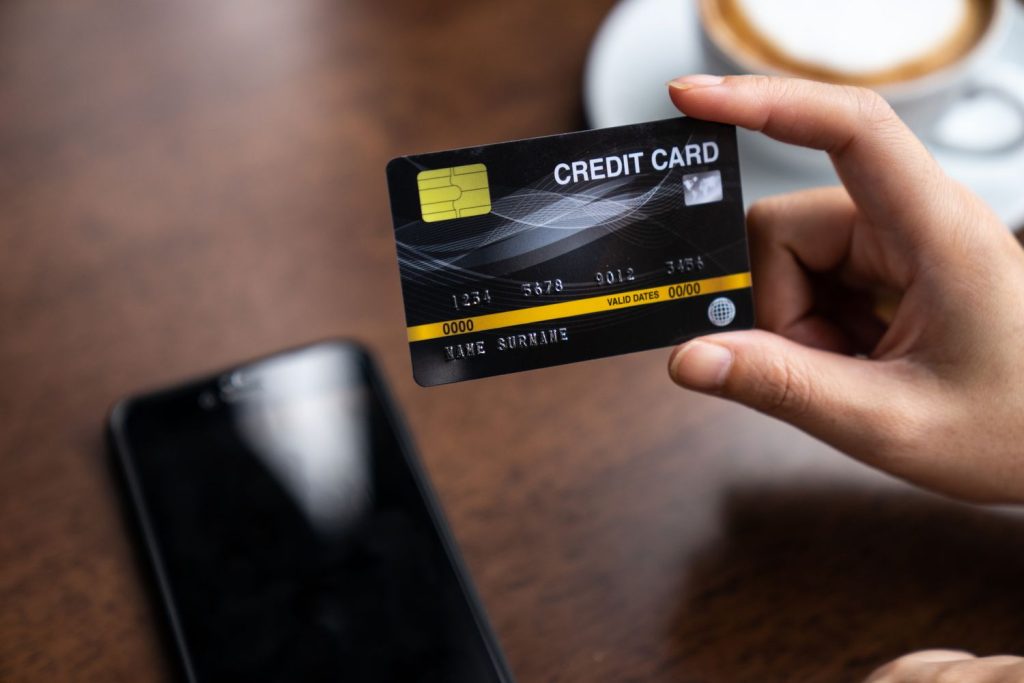The Advantage Of Having A Credit Card
Credit cards are a great way to build your credit score and secure your financial future, but how do you know that you’re using them wisely? With so many rewards programs and cash-back bonuses available, it can be difficult to understand the advantages of having a credit card. From understanding your credit score to managing monthly payments, this article will provide you with the knowledge you need to reap the benefits of having a credit card without putting yourself at risk. So let’s jump in – what could be better than getting rewarded for making responsible financial decisions?
Building Your Credit Score
Having a good credit score is essential to secure loans and mortgages, but it can be hard to build up a strong credit score. Fortunately, using a credit card responsibly can help you establish a solid credit history, even if you don’t have any other accounts or payment histories. To build your credit score with a credit card, use the card for everyday purchases and pay your bills on time every month. Avoiding cash advances and spending too much on the card will also help you maintain an excellent rating. Additionally, make sure to watch out for fraudulent activity – always keep an eye on your monthly statement, and if you notice anything unusual contact your credit card issuer immediately. Finally, check in regularly with the three major credit bureaus: Experian, TransUnion, and Equifax. This will allow you to monitor changes in your report and take steps quickly if any negative entries need addressing. Using these tips can ensure that you get the most out of having a credit card while building up a strong financial future.
By following these tips, you can ensure that you reap the benefits of having a credit card while also building a strong and secure financial future. Now it's time to take it a step further and learn about Understanding Your Credit Score.

Understanding Your Credit Score
Understanding your credit score is an essential part of managing your money and building a solid financial future. A credit score is essentially a numerical representation of how reliable you are when it comes to paying back loans and other credit card debts. Credit scores are determined by a variety of factors, such as payment history, credit utilization ratio, length of credit history, type of accounts held, and more. Depending on these factors, you can be assigned a score ranging from 300-850. The higher the number, the better your credit rating will be and this will have an impact on whether or not you qualify for certain loans or mortgages. It’s important to regularly check in with the three major credit bureaus – Experian, TransUnion, and Equifax – to stay up-to-date with any changes that could affect your score. This way you can stay informed about what steps you should take to maintain or improve your overall credit rating.
How Having A Credit Card Impacts Your Credit Score
Having a credit card can have a major impact on your credit score, both positively and negatively. It’s important to understand the basics of how credit cards work to make sure that you are using them responsibly and managing your money well. When it comes to building or maintaining good credit, having one or more active lines of credit is key. Responsibly using your credit card and paying your bills on time will result in positive marks being added to your credit report, increasing your overall score. On the other hand, making late payments, going over your credit limit, or applying for too many cards can hurt your score. It’s also important to remember that the amount of debt you carry has an impact as well – carrying large balances from month-to-month could lower your rating significantly. Bottom line: use caution when dealing with credit cards and make sure you know what you're getting into!
Tips for Maintaining a Good Credit Score While Using a Credit Card
Having a credit card can be beneficial if you use it responsibly and pay off your balance each month. It is important to be aware of how using a credit card affects your credit score, as your score can have a major impact on loan eligibility and interest rates. Here are some tips for maintaining a good credit score while using a credit card:
• Pay attention to the amount of debt you carry each month with your credit cards, as high balances can lower your score.
• Make sure all monthly payments are made on time – even one late payment could lower your rating significantly.
• Keep track of how close you get to reaching the maximum amount of available credit – going over your limit could raise red flags with lenders.
• Avoid cash advances whenever possible, as they come with higher interest rates and fees than regular purchases.
• Sign up for rewards or travel insurance programs offered by the card issuer – these features can give you added benefits without damaging your score.
• Monitor your spending habits, as too many applications in quick succession may lead lenders to feel uneasy about extending more credit.
By following these guidelines, you should be able to maintain a healthy credit score while taking advantage of the benefits that come from having a credit card.
Debit vs. Credit Cards
When it comes to making purchases, consumers have the option of using either a debit or credit card. Both products provide an easy method of payment, but there are distinct differences between the two that should be noted before making a decision on which one best suits your needs.
Debit cards are linked directly to your checking account and allow you to withdraw cash from ATMs as well as make purchases online and in-store. Since they are connected to your bank account, any transactions you make will come directly out of your funds. Credit cards, on the other hand, offer a line of credit from the issuing company or financial institution that allows you to make purchases and pay them off over time with interest.
Both products have their advantages and disadvantages depending on the user’s circumstances. Debit cards offer less risk since you cannot spend more than what is available in your account, but credit cards often come with rewards programs and signup bonuses that can be beneficial for those who use them responsibly. Ultimately, it is important to weigh both options carefully before deciding which one is right for you.
In conclusion, it is important to understand the differences between debit and credit cards before making a decision on which one is right for you. At the end of the day, both offer distinct advantages that may be beneficial depending on your circumstances. Now let's dive deeper and explore the advantages of using a credit card over a debit card.
Advantages of Using a Credit Card Over A Debit Card
Using a credit card instead of a debit card can provide more flexibility for your financial needs. Credit cards allow you to make purchases up to your credit limit, which can be much higher than the amount available in your checking account. Credit cards also offer additional benefits such as cash advances, travel insurance, and rewards programs that can help you save money while making everyday purchases. Furthermore, they provide an opportunity to build or rebuild a positive credit history by paying bills on time and managing balances responsibly. This is especially important when applying for personal loans or other forms of credit in the future.
Additionally, credit cards often come with fraud protection which helps to safeguard your information and ensures that any unauthorized purchases are quickly resolved by the issuer or bank. Finally, many issuers work with a credit bureau that tracks spending habits and payment patterns which helps them determine whether an individual is eligible for higher limits or additional rewards cards in the future.
In summary, there are many advantages to using a credit card over a debit card for online purchases, monthly payments, and everyday transactions such as groceries and gas. Not only does it enable users to access higher limits than what’s available in their checking account but it also provides opportunities to build a credit history, receive rewards programs and enjoy fraud protection services from the issuer.
Disadvantages of Using a Debit Card Over A Credit Card
Debit cards are convenient for making small purchases but they can also come with a few drawbacks when compared to credit cards. Unlike credit cards, debit cards do not help build a positive credit history as payments are automatically taken from the user’s bank account rather than needing to be paid off over time. This means that individuals will not benefit from any sort of rewards or bonus points for using their card nor will it show up on their credit report. Additionally, debit cards lack most of the fraud protection services offered by many credit card companies such as zero liability in case of theft and unauthorized use. Furthermore, they usually have lower spending limits than what is typically available on a credit card which can make it difficult to pay for larger expenses such as car repairs or travel expenses.
In conclusion, while debit cards can offer convenience and security when making small purchases, they may not be the ideal choice for more significant transactions. Credit cards provide additional benefits such as building a positive credit history, receiving rewards programs, and enjoying fraud protection services that cannot be found with debit cards.
Securing Your Financial Future With Rewards Programs and Cash Back Bonuses
Securing your financial future is a top priority. One of the best ways to do this is by taking advantage of rewards programs and cash-back bonuses offered by credit card companies, check it out with https://finanza.no/beste-kredittkort/. Rewards cards allow you to earn points or cash-back bonuses on everyday purchases, from groceries to gas, that can be used for great savings on travel and other experiences. Cash-back bonuses are typically based on the amount spent and can be used for anything from statement credit to gift cards. And if you use your card responsibly and pay your bills on time, you will benefit from an increase in your credit score which can qualify you for better loan rates in the future.
Rewards programs and cash-back bonuses are a great way to make sure your financial future is secure while also allowing you to enjoy great savings along the way. Whether it’s earning bonus points or cash back, using a rewards card not only makes smart fiscal sense but also allows you to save money on everything from online purchases to monthly payments. So take advantage of these great offers today and start securing your finances tomorrow!
Start on the right financial track today and make sure your future is secure with rewards programs and cash-back bonuses. With these great offers, you can save money and enjoy great experiences - all while building a better tomorrow. And don't forget to check out the different types of rewards programs and cash-back bonuses available on different cards, so you can maximize your savings!
Understanding Types of Rewards Programs and Cash Back Bonuses Available on Different Cards
Understanding different types of rewards programs and cash-back bonuses available on different cards is key to maximizing your savings and securing a better financial future. Credit card companies offer various rewards programs that allow you to earn points or cash-back bonuses on everyday purchases, from groceries to gas. Cash-back bonuses are typically based on the amount spent and can be used for anything from statement credit to gift cards. When shopping around for a credit card, it’s important to understand the different types of rewards programs offered so you can choose the one that best fits your lifestyle and spending habits. It’s also important to read the fine print of each program so you know exactly how much cash back or points you’ll get for making certain purchases. Knowing this information will help you maximize your savings and ensure that your financial future is secure.

How to Maximize the Benefits You Receive From Rewards Programs and Cash Back Bonuses
The use of rewards programs and cash-back bonuses can be a great way to save money and build up credit. There are a few pros and cons to participating in rewards programs and cash-back bonuses, so it's important to weigh the pros and cons before deciding if they are the right fit for your financial needs.
Pros of participating in rewards programs and cash-back bonuses include the potential to earn points or cash back on purchases, free travel insurance or discounts on certain purchases, access to exclusive offers, and improved credit scores. Rewards programs can also help you build up a good credit history, which is beneficial when applying for loans or other credit cards.
On the other hand, there are also some cons associated with rewards programs and cash-back bonuses. For example, some cards may have high-interest rates or annual fees that could increase your overall costs. Additionally, there may be restrictions on how much you can earn or what type of items you can purchase with your reward points. Furthermore, it is important to remember that if you fail to pay off your balance in full each month, any reward points earned will be negated by the amount of interest accumulated on your card balance over time.
To maximize the benefits of rewards programs and cash-back bonuses, it is essential to read through all terms and conditions carefully before signing up for a card. Additionally, make sure that any fees associated with using the card are reasonable relative to its benefits. Finally, always pay off your balance in full each month so that you don’t accrue any additional costs from interest charges.
Managing Your Monthly Payments & Spending Habits
Good financial habits are essential for managing your credit and avoiding costly late payments and interest charges. To ensure that you pay off your balance in full each month, it is important to create a payment schedule that works for you. This should include setting aside enough money each month to cover all of your bills and making sure to pay them on time. Additionally, tracking your spending habits can help you stay within budget and avoid unnecessary purchases.
Setting up automatic bill payments can be a great way to ensure that your bills are paid on time each month. You can set up these payments through most banks or credit card companies, allowing you to have peace of mind knowing that your bills will be taken care of automatically each month. Additionally, if possible, consider consolidating credit card balances into one loan with a lower interest rate so that more of the money goes towards paying down the principal instead of interest charges.
Finally, take advantage of rewards cards like cash back cards or those offering airline miles for everyday purchases such as groceries or gas. While it is important not to overspend when using rewards cards, they can provide an extra incentive for staying within budget and paying off bills on time. By taking these steps, you can establish good financial habits and avoid costly fees associated with late payments or high-interest rates.
Protecting Yourself from Fraud & Theft with Security Features
Credit cards provide the convenience of making payments without having to carry cash, but they also come with certain risks. To protect yourself from fraud and identity theft, it is important to understand the security features available on your credit card accounts.
Most credit cards come with a chip-and-pin system that requires you to insert your card into a machine and enter a personal identification number (PIN) for purchases. This system helps prevent unauthorized use of your card if it gets lost or stolen. Additionally, some cards have contactless technology which allows you to tap your card against a reader instead of swiping it or entering a PIN.
Another common security feature on credit cards is an embedded code that must be entered when making online purchases. This code changes periodically, making it more difficult for someone else to use your card information for fraudulent purposes. It is important to always check the website address before entering this code as well as any other sensitive information related to your account.
Finally, many credit card issuers offer additional protection such as fraud alerts and zero liability policies that can help minimize the risk of fraud and identity theft. By taking advantage of these features and being mindful of how you use your credit cards, you can reduce the chances of becoming a victim of fraud or theft.
Summary/Conclusion
In summary, credit cards offer a convenient way to make payments without having to carry cash, but they also come with certain risks. To protect yourself from fraud and identity theft, it is important to understand the security features available on your credit card accounts. Most credit cards come with a chip-and-pin system and contactless technology as well as embedded codes for online purchases. Additionally, many issuers provide additional protection such as fraud alerts and zero liability policies. By taking advantage of these features and being mindful of how you use your credit cards, you can reduce the chances of becoming a victim of fraud or theft.

